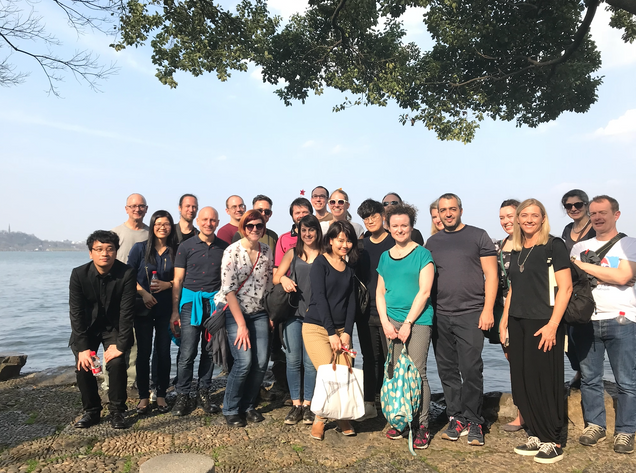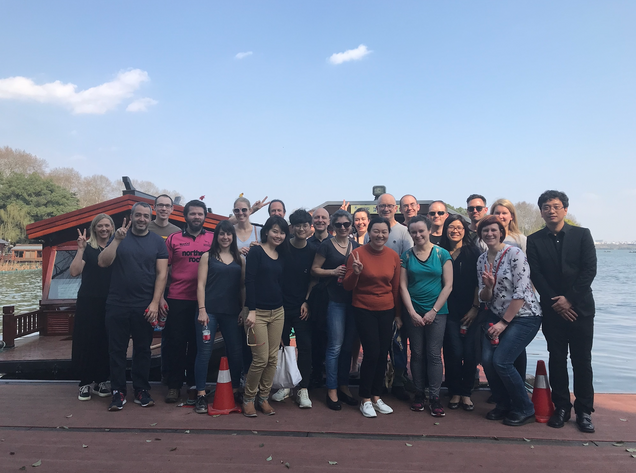Executive Education: Arup in China
Each year, the Initiative on Cities partners with the Boston University Questrom School of Business to host an executive education program that trains business leaders to think like cities. This six-month program focuses on navigating urban power and influence for a group of engineers, architects and designers from the renowned global firm, Arup. The object of the course is to help participants understand the forces that shape the projects on which they work for cities. In addition to a residential instruction component of the course, the participants work in small teams to develop a project that is both transformative and feasible to present to a city.
Why take the course to China?

Part of the answer is that in this “age of the city,” China illustrates vividly the trend of rapid urbanization that is reshaping the world. Once a predominantly rural, peasant society, China is now a majority urban country, and in another decade or so will be predominantly urban. The sight of skyscrapers of Pudong, Shanghai at night, illuminated in an over the top, fair-ground brightness and color, is one of the great sites of the twenty-first century urban world.
Another answer to that question is that Arup, like most global companies, needs to succeed in new markets such as China, as well as in traditional markets. China is already the world’s second largest economy. It is almost inevitable that China will overtake the United States to be the world’s largest.
An even more important reason for our inclusion of China in our executive education program, is that Chinese urban governance on paper is almost a mirror image of urban governance in the countries in which participants usually work. China is still a country ruled by a communist party, albeit one that has embraced capitalism. It is a hierarchical system with a national plan and a system in which all officials are appointed by the Party and whose career prospects are determined centrally. Imagine a United States – or a France or a UK – in which mayors are not elected but appointed by a national organization for four-year terms and in whose reappointment or promotion to a larger city or national job depends on a favorable review by it. Acting in line with the goals and values of the national organization (and derived from it, the regional plan) is critical for a mayor’s prospects.

Clearly in understanding this system, we are not in Kansas – or Los Angeles or New York or Louisville – anymore in this world. And yet this system is not a totally foreign experience. The Chinese system is not all about review from above. Reviews of mayors involve checking on how their cities evaluate them; nothing is worse for a mayoral career in China than having a riot or violent protest take place during their term in office. Mayors have to please both superiors and their citizens.
Although Arup already has completed major projects in China, many participants in the course will never work on a project in that country. What they will take away, however, is that their understanding of urban power and influence in general will be so much greater because they’ve understood urban power and influence in China. Precisely because the system there is so different from the one in which they normally operate, thinking about the situation in China will make their understanding of their day-to-day situation all the stronger. “They know not England who only England know” goes the saying; the same is true of urban governance systems.
